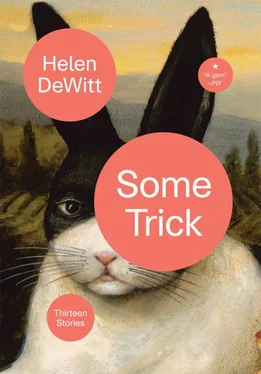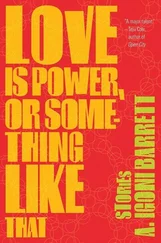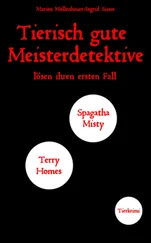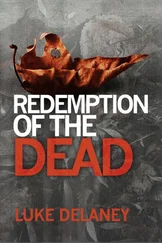It was necessary to return to New York for reasons we need not discuss. He put an ad on Craigslist and conducted interviews at Circa Tabac, where it was permitted to smoke.
Between interviews he talked to Siobhan behind the bar, explaining the ins and outs of the entourage. For a putative tip of $10–$25 an Irish bartender will offer quiet sympathy, not to say Gaelic charm, in a way that not only a hot shot $450-per-horam lawyer but also the hot shot’s $200-per-horam entry-level wannabes will emphatically not throw in with the billable hour.
A woman at the bar said her husband had won a sushi restaurant in a poker game. It had been closed down for violations of fish-related hygiene issues; the proprietor had shortsightedly complied with the letter of the law, neglecting the spirit of law enforcement. She had commented. Her husband had walked out, leaving her with two small children to raise.
“You wouldn’t happen to be looking for a sushi restaurant,” she said. “They tell me the sushi train alone is worth fifteen grand.”
A girl at the bar, a fiery redhead, told him he should be ashamed of himself. He should do something for his fellow man.
He was about to protest when he saw suddenly that something could be done with the sushi bar. As a child he had loved Charlie and the Chocolate Factory .
The mother-of-two had left. He darted to the door, scanned the street to left and right, descried the wretch in the middle distance, dashed in breathless pursuit.
Twenty children could be placed round the perimeter of the conveyor belt! Color-coded tasks could be assigned! The child would have the chance to amass points! Points would entitle the child to select a plate with a cake, cookie, chocolate, or other delight from the moving belt!
Skipping up and down, he wears a bow tie.
Studies have shown that a talent for delaying gratification is integral to success in our complex society. In the abovementioned studies the child is presented with a marshmallow, told it may eat at once; if it waits it may have a second marshmallow. It’s absurd. What sort of incentive is a marshmallow?
What one wants, surely, is to encourage industry by tapping into the longing for immediate rewards. One wants to offer the child the opportunity to win one chocolate after another. One wants, perhaps, to determine which sorts of chocolate are most efficacious.
One might install a sushi belt in every school, allowing access to only the hardest working students.
Prancing bow-tied on the pavement he explains his vision.
Money being no particular object he was soon in possession of the fabled sushi belt, with accompanying restaurant.
The peerless Siobhan found him an entourage manager, in whose capable hands he left the task of recruiting 20 children.
He had more money than he knew what to do with.
Presently he had more children than he knew what to do with.
Competition for a place was soon fierce.
Being perforce an autodidact he had read Barbara Godwin’s Justice by Lottery and been entranced. It is inarguable that, in a hereditary monarchy, the position of head of state is distributed, in effect, by lottery, the lottery of birth, and that the occupant is then trained for the position, and arguable that such a system might work better for any number of occupations than the present system in which, at every stage, purely educational aims are often subsidiary to the requirement to signal ability. The lottery need not, of course, be the lottery of birth. There is likewise no need, of course, for its allocation to be final; a five-year stint, if memory serves, was the recommendation of Godwin, though one could no doubt make a case for others.
With only 20 places to work with he did not want to wade through a flood of applications (he was sure to be flooded with applications once word of the excellence of the system got around). How much simpler simply to give a place to the first 20 children with attractive names. (Being an autodidact he had read extensively on the subject of fast and frugal heuristics as outlined by Gerd Gigerenzer of the Max Planck Institute.)
The names of the first 20 hopefuls were not as interesting as the names of his entourage. Many applicants had names like Matthew and Josh. The names of the first 10 members of the entourage, just to give an idea, were Þorvarður, Øyvin, Øllegård, Jäärda, Håkan, Ferenc, Franzyska, Knut, Xulio, Txomin. (He had agreed with the manager that the names of the entourage should remain fixed, though temperamental bearers might come and go; it was simple enough to advertise for the desired denominations.) He managed to come up with Niamdh, Cesangari, Amartya, Zygmunt, and Dzsó before retreating to a least worst selection. (A spirit of mischief, honesty compels us to confess, led him to arrange a separate session peopled entirely by bearers of the name of Josh.)
He had all sorts of ingenious schemes. Schemes for mastering the Cyrillic alphabet. (He had been entranced to discover that the Russian for Protopope was Протопоп.) Schemes for mastering logarithms, trigonometric identities, simple differentiation. There were all sorts of exercises; upon correct completion, the child might select a cake from the traveling belt.
Each session lasted three hours. Children had to be sent out to play.
He had delusions of grandeur. A sushi train presumably costs less than incarceration. Might the device serve as a preventive to juvenile delinquency?
He saw presently that one might place small tables, each seating 8, perpendicular to the belt. With a little judicious tinkering it was then possible to seat 160! Each table was supervised, you see, by a member of the entourage. It was really very light work.
A love of pet projects ≠ talent for dealing with government ministers.
When a child misbehaved it was expelled never to return.
When asked he stated that he was studying the role of chocolate in academic performance.
Was chocolate more efficacious than ice cream? Might some children respond better to one, others to the other?
He had once read a book by Orlando Patterson, Slavery and Social Death . Being of necessity something of an autodidact he had taken the book to heart. Patterson claimed that in the days of the Romans slaves often preferred the latifundia, plantations where slaves performed backbreaking labor but lived otherwise without surveillance, to the easier life of the household slave. Who cannot understand this? And who cannot understand that a child might be happier, in many ways, earning its keep than living the life of a pampered pet?
The children earned points for spelling čokoláda and cioccolata.
The Josh session could not have come at a better time.
If one is going to do the thing properly, one wants Borges read by an Argentinian, Vargas Llosa by a Peruvian, García Márquez by a Colombian. And so on. Sometimes, though, one doesn’t want to clutter up the mind. It was simpler, he realized, to settle on a single, easily memorable name for the Hispanophone contingent. He chose Julio. Within a short time he had Julio Argentino, Julio Chileno, Julio Boliviano, Julio Peruano, Julio Venezolano, Julio Colombiano, Julio Salvadoreño, Julio Mexicano (and so, of course, on) at his disposal. Similarly, one wants an Egyptian, of course, to read Mahfuz and el-Ghitani, a Syrian for Adonis, and so naturally on, but an entrepreneur needs to prioritize, it was simplest, he found, to recruit a cohort of Hassans. Who could then be distinguished as Hassan al-syriani, Hassan al-libnani, Hassan al-maghribi, and what have you.
Every once in a while a squabble would blow up among the Julios or the Hassans, but he now had an entourage manager (thank heavens!) to pour oil on troubled waters.
He devised ever more ingenious challenges, coupling them with ever more elaborate incentives.
Читать дальше












